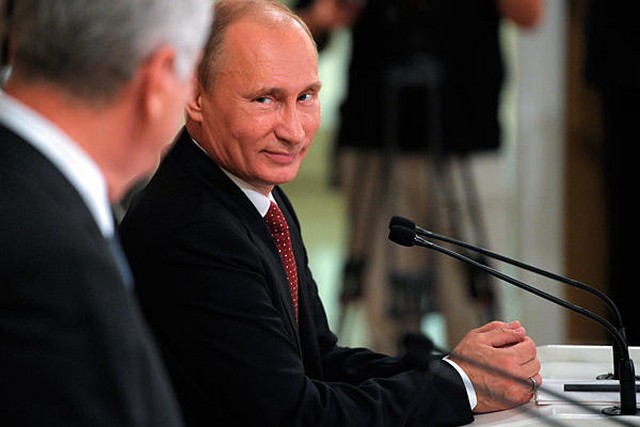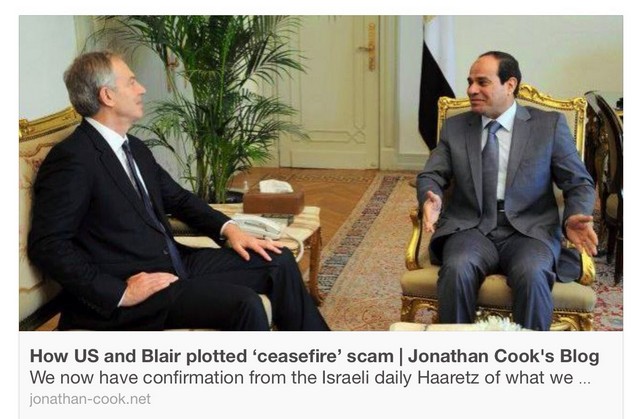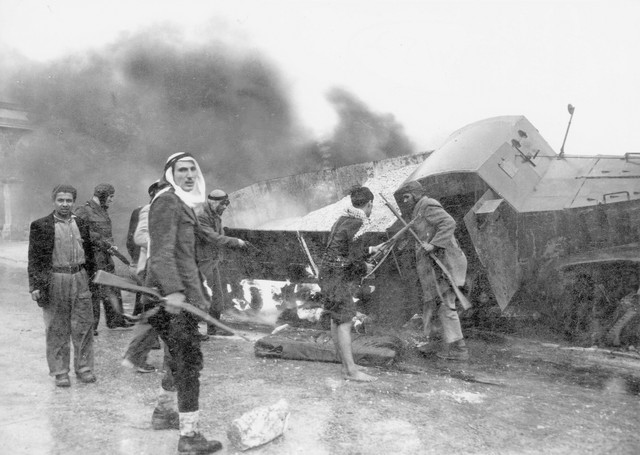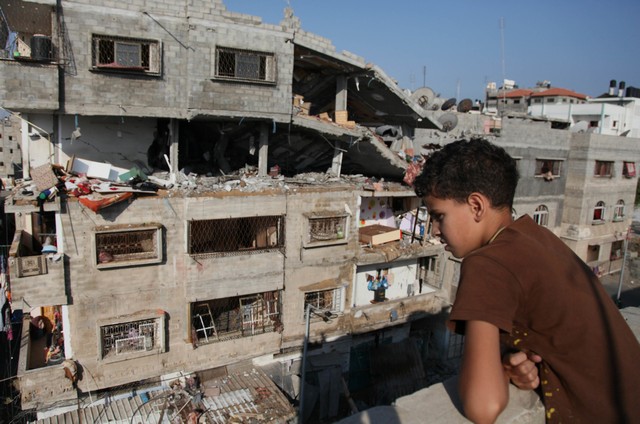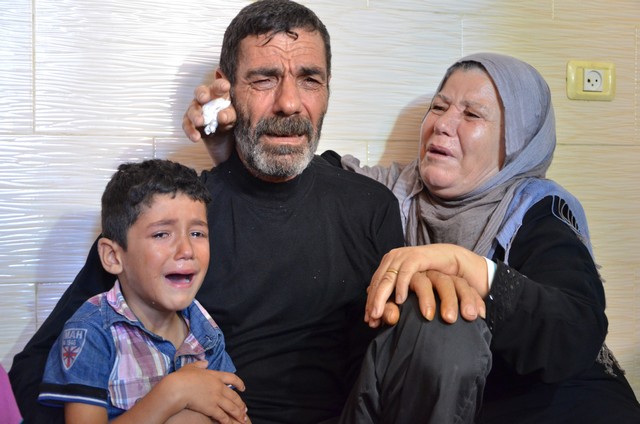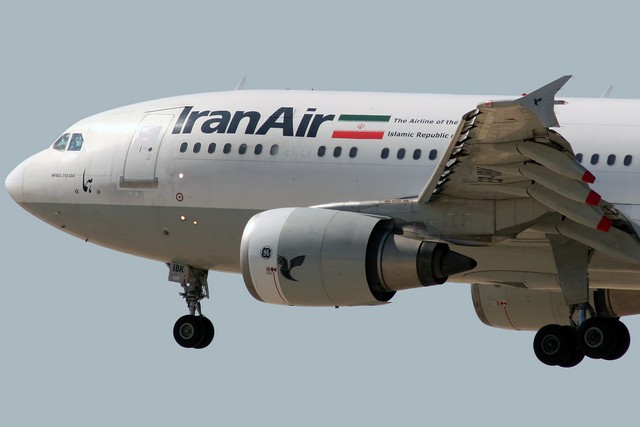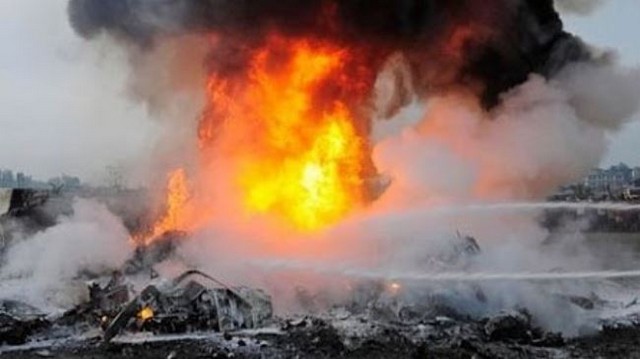By Kevin Zeese and Margaret Flowers
The people of the United States must work to end the interventionist violence of the U.S. Empire.
This is Part I of a two part series on American Empire. Part II will focus on the Empire Economy and his it is failing to work for most Americans as well as most people of the world.
The historian who chronicles US Empire, William Blum , issued his 130 th Anti-Empire Report this week. In it he notes that the US, by far, is seen by the people of the world as “the greatest threat to peace in the world today” with 24% taking that view. Only 2% see Russia as such a threat, and 6% see China.
This should not come as a surprise since, as this map shows , much of the world has been bombed, had their democratically chosen government overthrown and has been occupied by the United States. Blum follows these interventions closely and has reported that since the end of World War II, the United States has:
* Attempted to overthrow more than 50 foreign governments, most of which were democratically-elected.
* Dropped bombs on the people of more than 30 countries.
* Attempted to assassinate more than 50 foreign leaders.
* Attempted to suppress a populist or nationalist movement in 20 countries.
* Grossly interfered in democratic elections in at least 30 countries, according to Chapter 18 of his book Rogue State: A Guide to the World’s Only Superpower .
It seems the people of the world are factually correct when they label the United States the greatest threat to peace in the world.
Yet, despite this mass public opinion about the United States, US leaders seem oblivious. As Blum points out, Secretary of State John Kerry said: “In my travels as secretary of state, I have seen as never before the thirst for American leadership in the world.”
And, potential future leaders show support for the path of military intervention. The Republican Vice Presidential candidate in 2012, Paul Ryan (R-WI) said: “We need to be reminded that the world needs American leadership.” And the frontrunner for the Democratic presidential nomination, Hillary Clinton has said “The United States can, must, and will lead in this new century.”
A more accurate appraisal comes from Rev. Dr. Martin Luther King, Jr. in the Vietnam era when he said: “The greatest purveyor of violence in the world : My own Government, I cannot be Silent.” The people of the United States must follow the lead of Dr. King and work to end the interventionist violence of the United States Empire.
Reviewing the Hottest Spots in US Empire
The US is involved in military disputes around the globe, conflicts each could lead to a much broader war. The US role seems to encourage violence, rather than minimize it; to intervene, rather than allow people in the country or region resolve disputes. The breadth of Empire is costly in financial and human terms as well as to the respect of the United States and its people. Is the US Empire spread so thin at a time of a struggling economy that this is a moment where people can come together and build a movement to end Empire?
There are multiple hot spots where US Empire is participating, supporting and approving of escalating violence. Here’s a quick review:
Israel-Palestine : Even before its founding Israel was entangled with violence – the violence of removing Palestinians from their homes to create the “Jewish State.” Former Secretary of State and Supreme Allied Commander of NATO Alexander Haig perhaps most honestly described what Israel is to the United States when he aptly called Israel America’s “unsinkable battleship in the Middle East.”
The US battleship Israel is now involved in another slaughter of the Palestinian people of Gaza. We could write this entire article on the atrocities of this attack and the lies on which it is based, but we will be brief ( for more see here ). As we write this article, Israel is expanding the ground invasion of Gaza moving from the “ iron dome to the iron fist .” The last time there was a ground attack on Gaza was January, 2009 during Operation Cast Lead when 1,400 Palestinians, the vast majority of them civilians, were killed.
There have been protests throughout the United States see e.g. Boston , Detroit , Washington, DC at the White House as well as the Israeli Embassy ). This week, when local politicians expressed their fealty to Israel in New York City, protesters showed up to express a different viewpoint. In addition, students are organizing protests across the country and the international boycott and divestment movement against Israel grows. There are massive protests around the world .
The government of the United States supports Israel at all costs. Even when Israel kills children playing on a beach, the United States incredibly blames the Palestinians . The US never talks about the people of Gaza defending themselves from daily brutalization by Israel – that has gone on for decades – but always talks about Israel having the right to defend themselves. Social media is helping to show the reality of this manipulated and lopsided conflict. The veil is lifting.
As is common in military intervention hot spots, the US and Israeli public are treated to false , inaccurate and biased reporting. This has been especially on display in the current military attack on Gaza. One recent effective propaganda ploy reported widely in the US was the so-called cease fire brokered by the anti-Hamas government of Egypt with Israel. The Palestinians were not part of the negotiations and it would have reduced their rights, but Israel used the failure as an excuse to expand their war to a ground invasion. Imagine if the tables were turned and Syria negotiated a cease fire with Hamas that gave Hamas all it asked for – would Israel agree? Here’s the truth about the phony propaganda cease fire .
Major media outlets have been caught in lies and misrepresentations. ABC News may have been the most blatant when it showed video of Palestinians running for their lives and said they were Israelis. ABC was forced to admit the obvious lie , but that does not change their bias. The NY Times was caught changing the headline about the horrific killing of four young Palestinian boys playing on the beach. The pro-war bias of the Times is evident on many fronts of war. NBC has also become embroiled in controversy around its reporting as it removed a journalist who has been reporting on what is occurring in Gaza, and who witnessed the four children being killed by Israel at the beach just before the ground invasion began. The pressure grew so quickly that NBC was forced to reinstate the reporter. It is evident the US media cannot be trusted when it comes to their reporting on what is actually occurring in Palestine.
Ukraine: We have been reporting on developments in Ukraine for over a year. And, as with Israel there have been many instances of biased reporting in the US media. Robert Parry writes that “MSM outlets have been feeding Americans a highly biased narrative of the crisis non-stop from the beginning.” He points to the failure of the media to report on the right wing extremist role in the new Kiev government, describing the Russian “invasion” of Crimea – an invasion where no troops crossed the border, the harsh austerity plan agreed to by the new US supported leaders, the failure to report a secret visit to Ukraine by the head of the CIA among other false narratives and omissions.
Another important item not reported in the corporate media is how the two leaders chosen since the US supported and funded coup – the coup of an elected president to supposedly bring democracy to Ukraine – are consistent with US wishes. A Wikileaks document describes the president as “Our Ukraine (OU) insider Petro Poroshenko,” and shows how he has been working as an agent of the US government since 2006. And, former intelligence official, Ray McGoven, points out how US officials were caught on a telephone call saying the current Prime Minister, Arseniy Petrovych Yatsenyuk , a former banker, was the US choice. These two leaders have gotten Ukraine deeply into debt with Western bankers and have done as Western powers wanted including accepting major austerity requirements.
The horrible shooting down of a passenger plane seemingly by a missile is causing controversy now. We published two stories on the event , one from the NY Times and the other from Russia Today to show the stark contrast. RT reports that Kiev moved missiles that could shoot down a plane to the region and ten years ago shot down a Russian aircraft to demonstrate Kiev has the technology. This is not being reported in the US media which has ruled out the possibility that Kiev fired the missile and is debating whether Russia or the Eastern Ukrainian separatists fired the shot.
Both Kiev and the Eastern Ukranians have denied the shooting. Vladimir Putin has blamed the catastrophe on the ongoing attacks by Kiev against Eastern Ukraine and has urged a ceasefire, Obama joined in the call for a cease fire a day later. There have been aerial bombardments of Eastern Ukraine by Kiev . All the facts have not come in as we write this, so at this stage we just note the disparity in reporting. It would be wise not to make any assumptions but to wait for the evidence and certainly not use this as an excuse for direct involvement by the United States or escalation of hostilities. Putting in place a cease fire and finding a peaceful solution to the conflict is the approach we hope Ukraine takes.
Also notable is the lack of reporting on Ukraine. There are some incredible stories in the Russian media about atrocities being conducted by right wing extremists in Eastern Ukraine. We have not seen any western media deny the stories. One horrible story is of a child who was allegedly crucified by Ukrainian extremists while his mother was forced to watch and then she was dragged through the square by a tank until she died. Some describe what is occurring as genocide with the targeting of civilian buildings. International lawyer, Francis Boyle, said in an interview that the US was aiding and abetting genocide.
Iraq : After military attacks and economic embargoes of Iraq by Presidents George H.W. Bush, Bill Clinton, George W. Bush and Barack Obama, the country is a mess. The government is in chaos, a new Muslim group, ISIS (the Islamic State of Iraq and Syria), has taken many of the major cities by military force and there is talk of dividing the country into multiple parts. Obama has already sent hundreds of troops to Iraq, and Joint Chiefs of Staff Chairman, Martin Dempsey, has not ruled out a large US troop presence saying if “our national interests drive us there” we will send more troops. Too many in government do not realize that the cause of the problems in Iraq was the US invasion and occupation and that more of the same will not solve the problem, but is likely to make it worse. As Chris Hedges writes , ISIS is “the final answer to the collective humiliation of an occupied country, the logical outcome of Shock and Awe…”
We are pleased to see growing bi-partisan opposition to military involvement in Iraq by members of Congress who are urging Obama to get authorization from Congress as required by the Constitution. This letter , authored by Barbara Lee (D-CA) and Scott Regall (R-VA) ended up with 103 members of Congress signing on.
Once again the corporate media played its usual role of propagandizing Americans to drum up support for another war in Iraq. They consistently aired people who advocated prior attacks and occupations of Iraq while never allowing war opponents on the air. The media also exaggerates sectarian divisions , divisions the US made worse to control the population during the occupation. Despite mass propaganda, a majority of the American public oppose military intervention in Iraq and only 20% support it.
Those who oppose another Iraq War quickly organized protests throughout the country. Usually war propaganda works long enough to start the attack. For a new war with Iraq and an attack on Syria, the public has shown greater immunity to propaganda.
As William Blum notes, Hillary Clinton now admits she made a mistake in voting for the authorization for the use of force in Iraq. But, she is equally wrong on its outcome. Blum reports that in 2007 Clinton said, “The American military has done its job. . . the American military has succeeded.” Can the American public trust someone who is so mistaken in her hawkish, pro-militarist judgments?
Afghanistan: The longest war in US history is supposedly winding down at a very slow rate. President Obama agreed to draw down troops in 2016. This slow draw down may change now that a president who is friendlier to the US has been elected in Afghanistan. And, the leading candidate for president, Hillary Clinton, says she would be open to keeping U.S. military forces in Afghanistan past 2016. Clinton notes that with the new president there might be a “legal basis” for the US staying.
One thing that has not closed is the secret Bagram prison in Afghanistan officially known as the Detention Facility in Parwan. This prison, informally known as the Afghan Guantanamo, holds 40 secret “detainees.” These prisoners are held without charges, many for years. The prison is reportedly believed to be holding Pakistanis, Yemenis, Tunisians, Uzbeks and Russians. Bagram prisoners have even less rights than prisoners at Guantanamo and much less is known about their conditions. They do not have a right to a lawyer or to challenge their detention. This week it was reported that the prisoners in Bagram have been on hunger strikes which indicates there are serious issues at the prison. If the US presence in Afghanistan continues, these prisoners are likely to continue to be held.
The Asian Pivot : The centerpiece of President Obama’s foreign policy is the pivot to Asia. This massive shift of forces to Asia is meant to focus the US military on China, which the United States sees as its only economic rival; and a country that presents an alternative to big finance capitalism.
The pivot has led to major changes in many countries in the region as well as increasing tensions. Japan may be the most important as it is the third largest economy and has a long history of militarism. Japan has a large military and has worked with the United States for decades, buts its “pacifist” constitution has a clause that forbids it from engaging in foreign war. Article 9 of the Constitution says:
“Aspiring sincerely to an international peace based on justice and order, the Japanese people forever renounce war as a sovereign right of the nation and the threat or use of force as means of settling international disputes.
“In order to accomplish the aim of the preceding paragraph, land, sea, and air forces, as well as other war potential, will never be maintained. The right of belligerency of the state will not be recognized.”
Ret. Col. Ann Wright points out that the US has been pressuring Japan to change that restriction. The United States wrote Japan’s constitution, but once China became a communist nation, the US wanted Japan to participate in militarism in the region. As William Blum reports , on July 1, Prime Minister Abe gave the US its wish. Without changing a word, he reinterpreted the constitution to mean that Japan could not attack another nation on its own, but it could do so in allegiance with another nation. (Hmm, we wonder what country he had in mind?) This unilateral change was made despite strong opposition in Japan, including a protester who burned himself to death .
Already there have been tense moments between China and Japan with its ally, the US. Last November there were multiple challenges as Japan and the US violated the “Air Defense Zone” of China resulting in China scrambling fighter jets over the East China Sea in response. Tensions will likely rise as the US has now brought drones into the Asian Pacific which are housed on military bases in Japan.
The United States has also entered into new agreements with Australia, resulting in former Prime Minister Malcolm Fraser warning his country may be drawn into a war against China as a result of how intertwined the US and Australian military’s have become. Similarly, new military agreements between the Philippines and the US, protested by the Philippine people , create a situation where some see their country as once again becoming a US colony.
There have also been ongoing protests in South Korea as that country becomes more entangled with the Asia Pivot. The “Peace Island” of Jeju, South Korea has been a special focus as the country which was devastated by a US puppet government is being forced to accept a naval base that is inconsistent with the nonviolent views of the population.
Bruce Gagnon, who has worked with the people of Jeju Island to stop the navy base and who is active with Veterans For Peace, warns that the US is looking for trouble with China . And Nile Bowie warns that the peace movement should spend more focus on China. There are a lot of hot spots in the world, but the future of military conflict is likely to emanate from Obama’s Asian Pivot.
These are just the current hot spots. The US is also increasing it militarism in Africa. AfriCom has rapidly grown under President Obama. Tom Dispatch reports the US military is active in Algeria and Angola, Benin and Botswana, Burkina Faso and Burundi, Cameroon and the Cape Verde Islands, Senegal and the Seychelles, Togo and Tunisia, Uganda and Zambia. “From north to south, east to west, the Horn of Africa to the Sahel, the heart of the continent to the islands off its coasts, the US military is at work. Base construction, security cooperation engagements, training exercises, advisory deployments, special operations missions, and a growing logistics network, all undeniable evidence of expansion—except at US Africa Command.”
Then, of course, there is Iran where things seem to no longer be on the edge of war, but Iran is a nation the United States has been at odds with since the CIA put in place the Shah in a coup in 1953 and was thrown out in the 1979 Iranian Revolution. Since that time there has been constant conflict. While there are tenuous nuclear negotiations right now, Iran always has the potential to become a hot spot as it has refused to become part of the US Empire.
Is US Empire Collapsing?
The US Empire is the largest in world history with more than 1,100 military bases and outposts around the world . To put that in perspective, compared to two other large empires , there were 37 Roman bases at that empire’s peak in AD 117 and 36
British bases at empire’s peak in 1898. Not only is the US Empire the largest in history but it has been the most destructive.
Each of the conflicts described in this article could escalate until a much larger war where US ground troops become enmeshed in war. The faltering US economy can no longer afford the expensive US military. The people of the United States no longer support war and the people of the world are rebelling against US rule. People are beginning to mobilize (see. e.g. World Beyond War ) to finally put an end to US militarism and Empire.
Next week: How the Empire Economy
Follow us on twitter @PopResistance and sign up for our daily news summary here .
This article is produced by Popular Resistance in conjunction with AlterNet . It is a weekly review of the activities of the resistance movement.
Kevin Zeese, JD and Margaret Flowers, MD are organizers of PopularResistance.org ; they co-direct It’s Our Economy and co-host Clearing the FOG .
21 July, 2014
Countercurrents.org

